Can Dogs Have Brown Rice?
Hey there, buddy! You know how sometimes you’re digging into your dinner, and your fur friend gives you that “Hey, can I have some?” look? You probably start wondering, ‘Hey, is it actually safe for my pooch to munch on some brown rice?’ Well, you’re not alone in that boat!
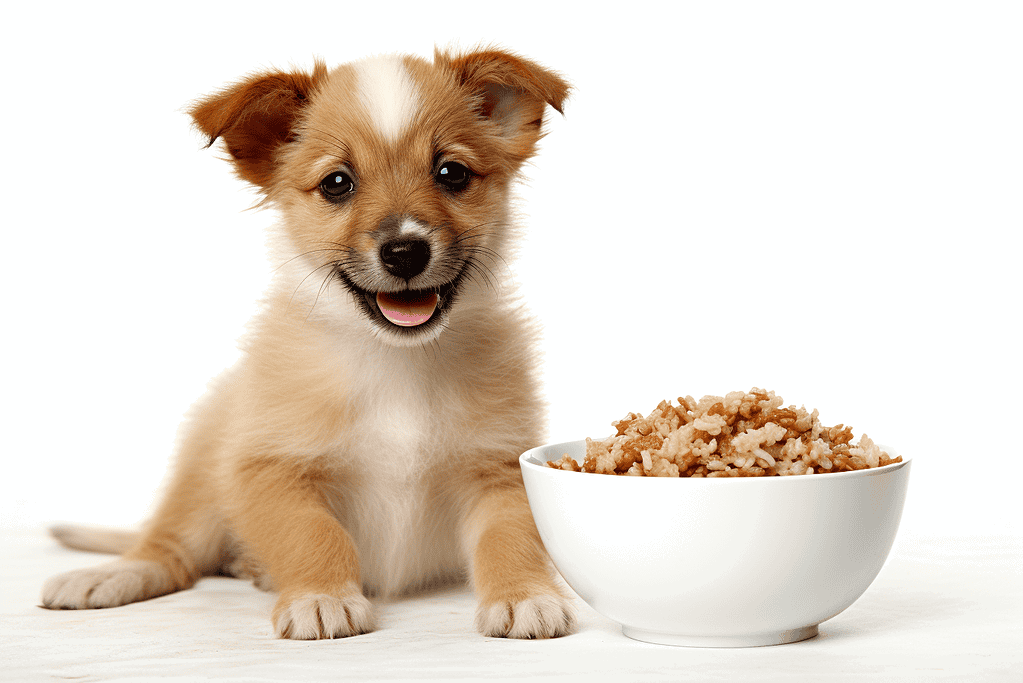
I mean, let’s face it, we can’t put a price on our fur pals’ health, right? So, it’s a legit question. Brown rice is like a health-packed picnic for your dogs. It’s a kind of soft, fluffy carb that’s super easy on your doggo’s tummy, plus it’s got tons of minerals and B vitamins. Think of it like a health bar but for dogs!
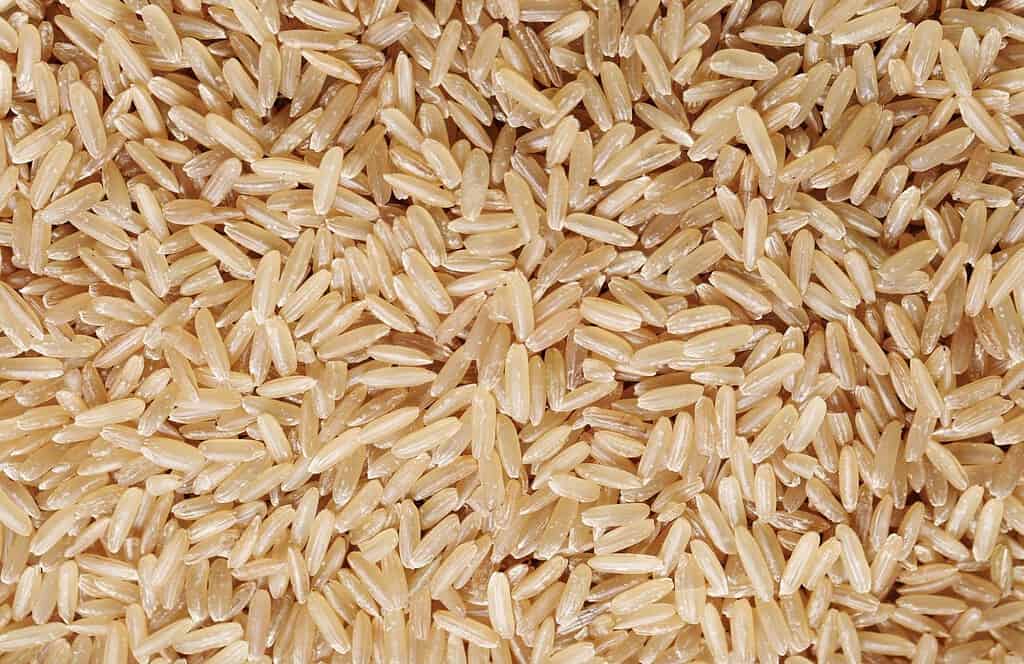
And here’s a fun fact! Comparing white rice to brown rice is like comparing a cheese puff to a solid, healthy whole-grain bread. The brown stuff has a lower glycemic index and serves up more fiber, which keeps your furry buddy fuller for a long time. Now, there could be some party poopers saying, “Brown rice is too tough for dogs to digest!” But trust the experts, the vets give brown rice a big, jolly thumbs up for the pooches, just remember the golden rule – moderation is key.
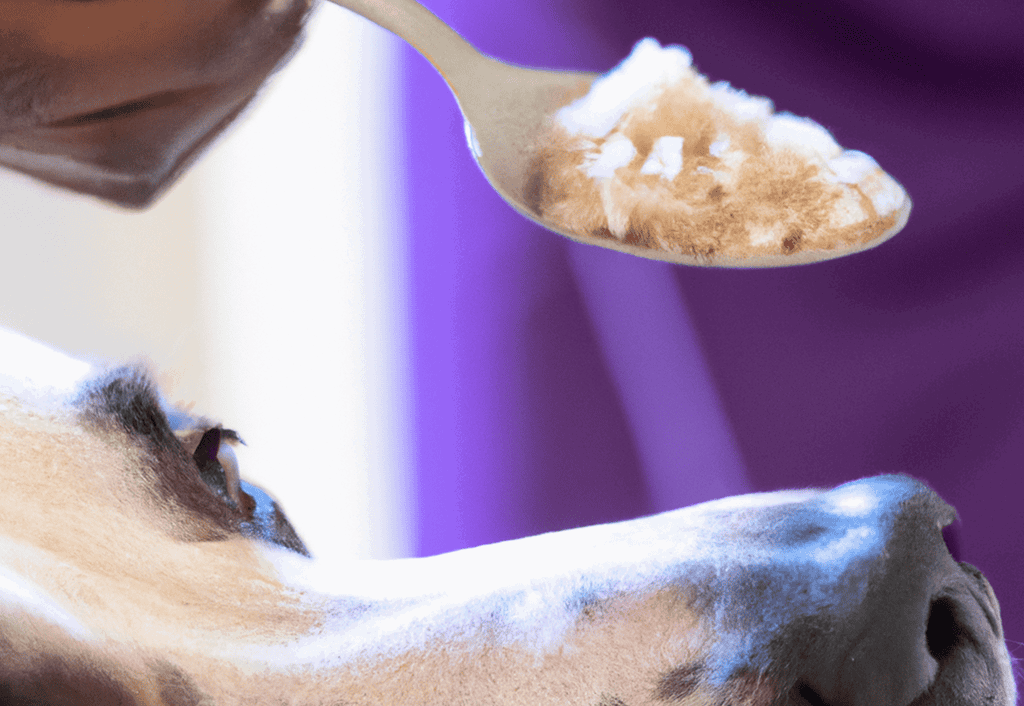
Yes, serving brown rice to your fur buddies as part of a balanced diet can be like saying “Cheers!” to better digestion and overall health. So, next time your little buddy bats those cute puppy eyes at you, share a spoonful of that wholesome rice and make their day. Just don’t get carried away and turn dinner into an all-you-can-eat brown rice buffet!
Brown Rice Vs White Rice
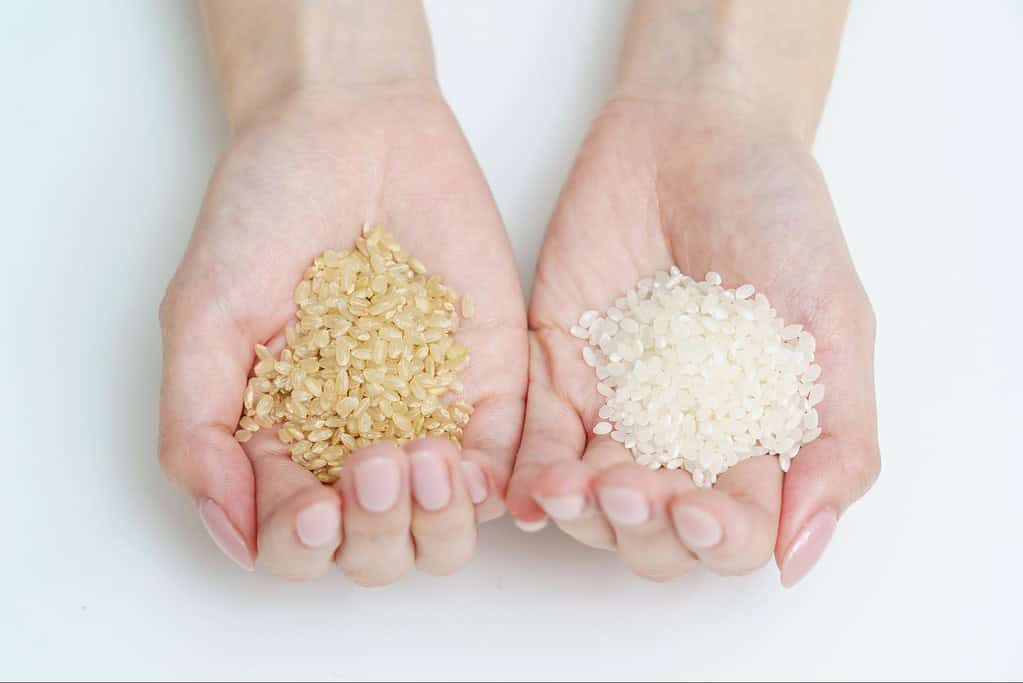
So, you’re playing the ‘Brown Rice Vs. White Rice for Dogs’ game, huh? Let’s clear up the food fight for you!
Essential Nutrients
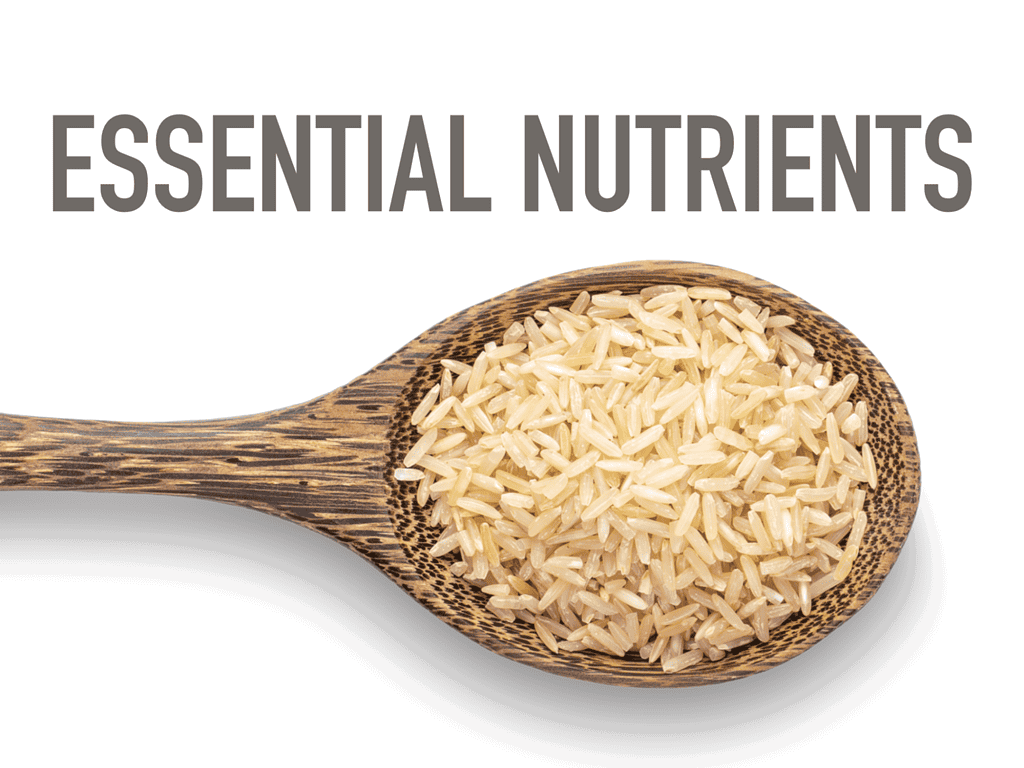
Brown rice is a whole grain that contains essential nutrients such as fiber, vitamins, minerals, and amino acids. White rice, on the other hand, has had the bran and germ removed during processing, which results in lower nutrient content.
Glycemic Index

Brown rice has a lower GI compared to white rice, meaning it releases glucose in your pup’s bloodstream at a nice, slow pace. This slow and steady pace is great for dogs with diabetes or those little warriors who tend to have blood sugar spikes.
Fiber
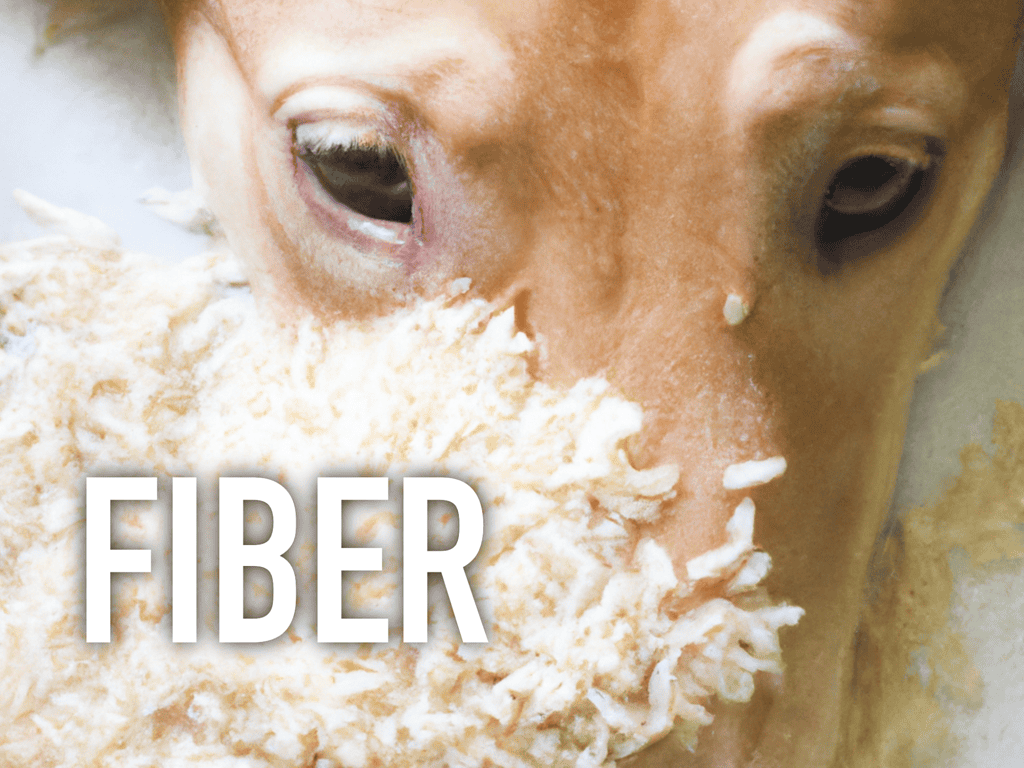
Onto the next round, what about fiber? Well, brown rice would take home the gold medal. With more fiber, it’s a champ in maintaining your dog’s healthy digestive system and keeping their potty schedule regular. That’s a win-win for gut health, reducing messy problems like constipation or diarrhea.
Minerals
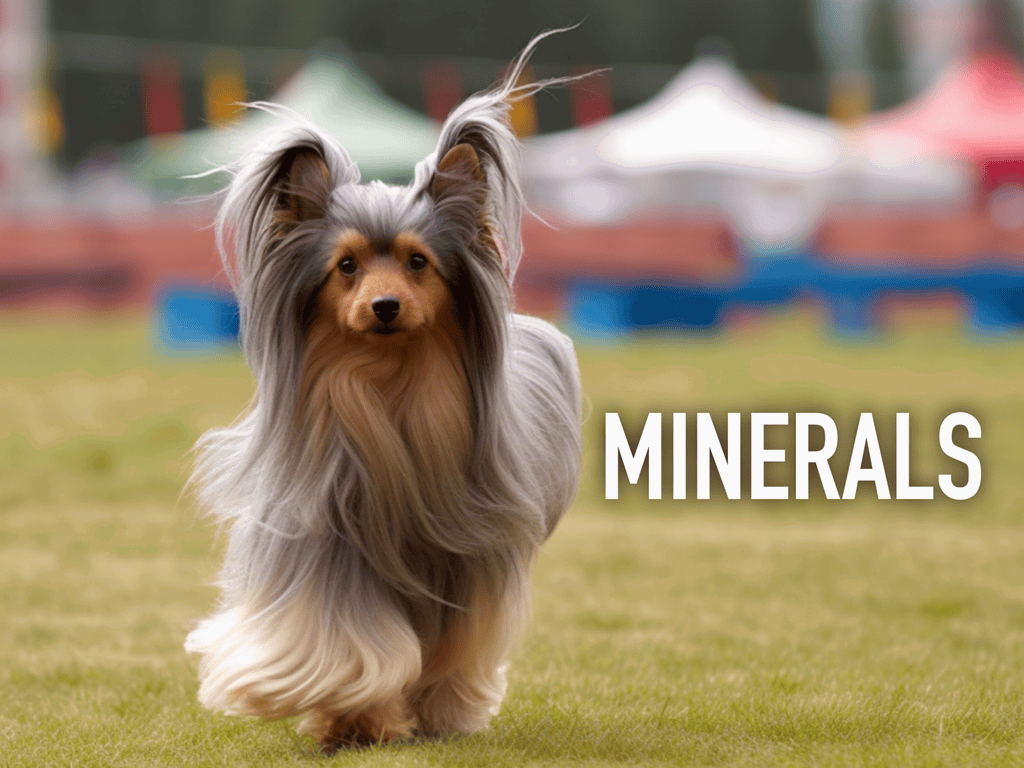
And it doesn’t stop there! Brown rice has an impressive stash of essential minerals like iron, magnesium, manganese, zinc, and potassium. These minerals are like your fur pal’s personal health team, supporting bone development, nerve function, and enzyme reactions. Plus, brown rice serves up a healthy dose of B-vitamins too, which are like little power generators for your pooch’s energy metabolism and nervous system.
Carbohydrates

Now, you probably thought when it comes to carbs and calories, both types of rice would finally draw even. But here’s the kicker: the complex carbs in brown rice break down slower, providing your fur buddy with a steady, easygoing energy boost instead of a sudden rush.
Protein
Finally, brown rice comes with a higher number of essential amino acids – which are super important for developing your pooch’s muscles, ligaments, and tissues.
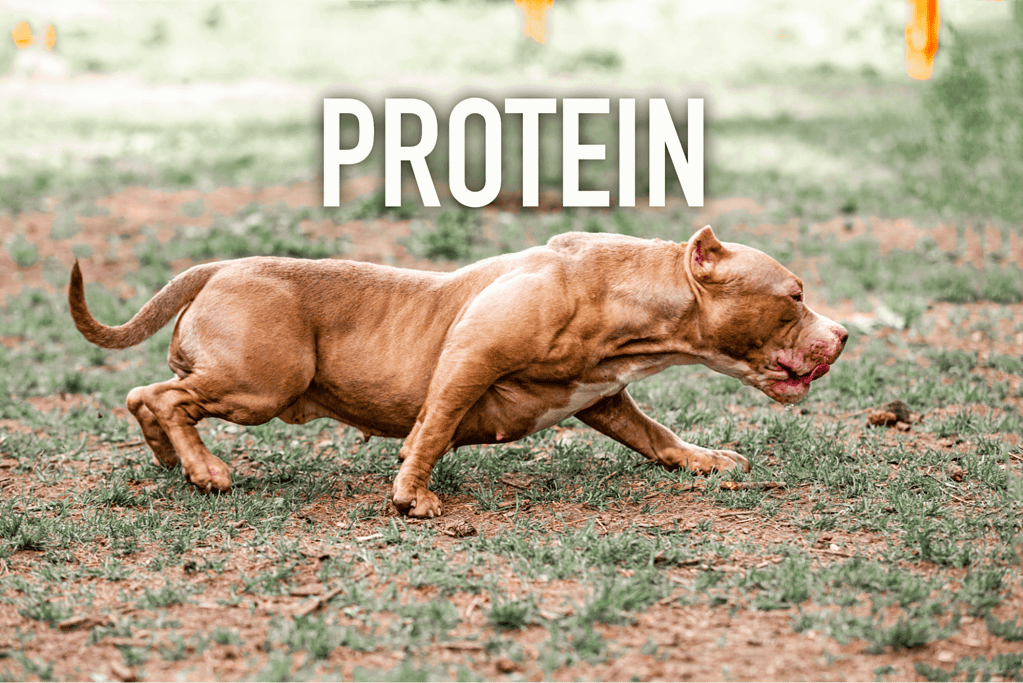
So, to boil it all down: while white rice won’t harm your dog, brown rice pulls ahead like a greyhound at the races. It’s a healthier option thanks to its lower glycemic index, higher fiber, and nutrient content. Including brown rice in your doggo’s diet can mean better health and energy levels. So, next time your fur buddy is looking for a feast, serve them up a bowlful of brown rice fit for a champ!
Nutritional Value of Brown Rice
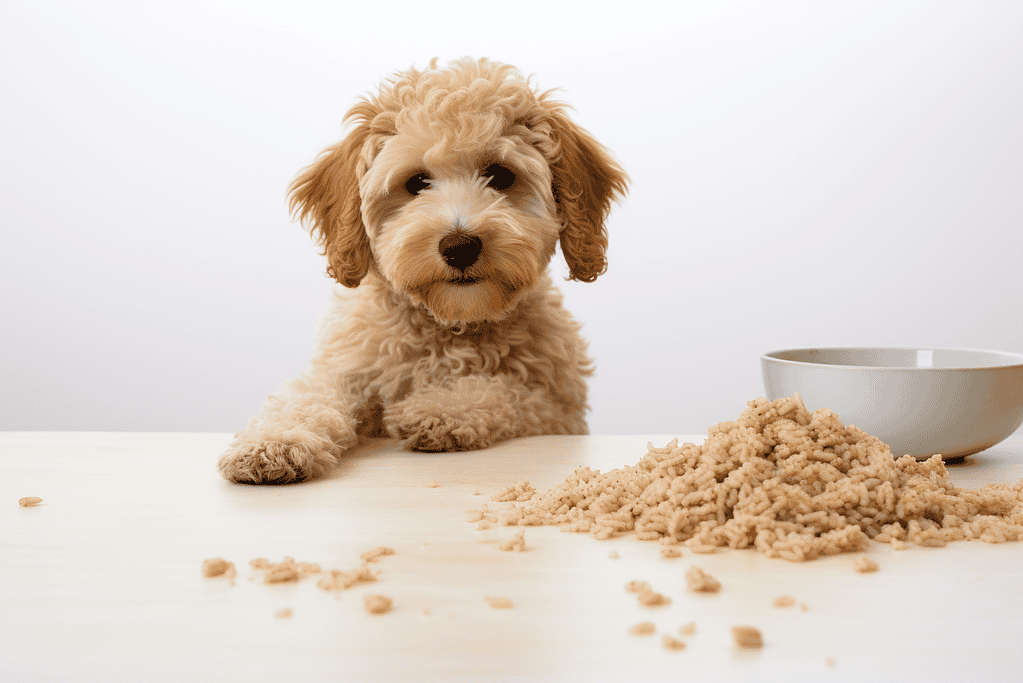
Let’s talk about the goodness packed in brown rice, guys! It’s an absolute must-have for your fur buddy’s diet. Brown rice, being a whole grain, brings fiber, essential amino acids, and high-quality carbohydrates to the table. It’s the kind of energy booster your canine pal needs! Plus, it’s rolling in the riches of vitamins, minerals, magnesium, manganese, iron, zinc, potassium, and selenium. That’s a whole lot of goodies in one little brown rice package!
Fiber
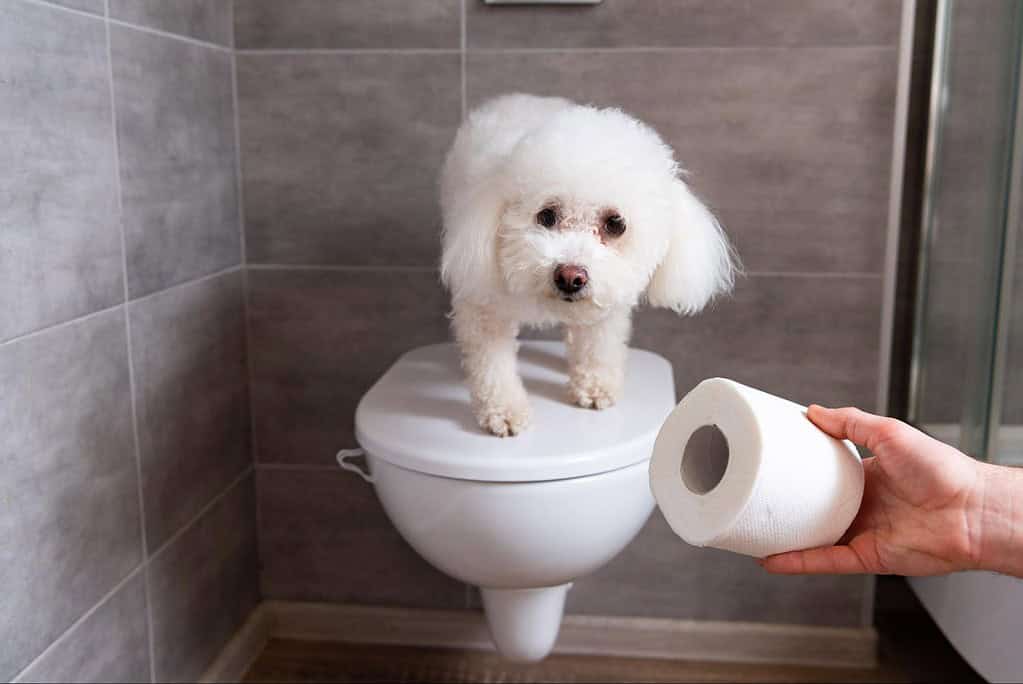
Brown rice contains natural fiber, which is essential for maintaining healthy digestion. The increased fiber content can help regulate bowel movements and improve overall gastrointestinal health.
Amino Acids

It also steps up as a mini-gym, supplying essential amino acids necessary for building and repairing your dog’s body tissues. These amino acids act like little helpers, supporting muscle growth, skin, and coat health, and juggling a bunch of other metabolic functions.
Micronutrients
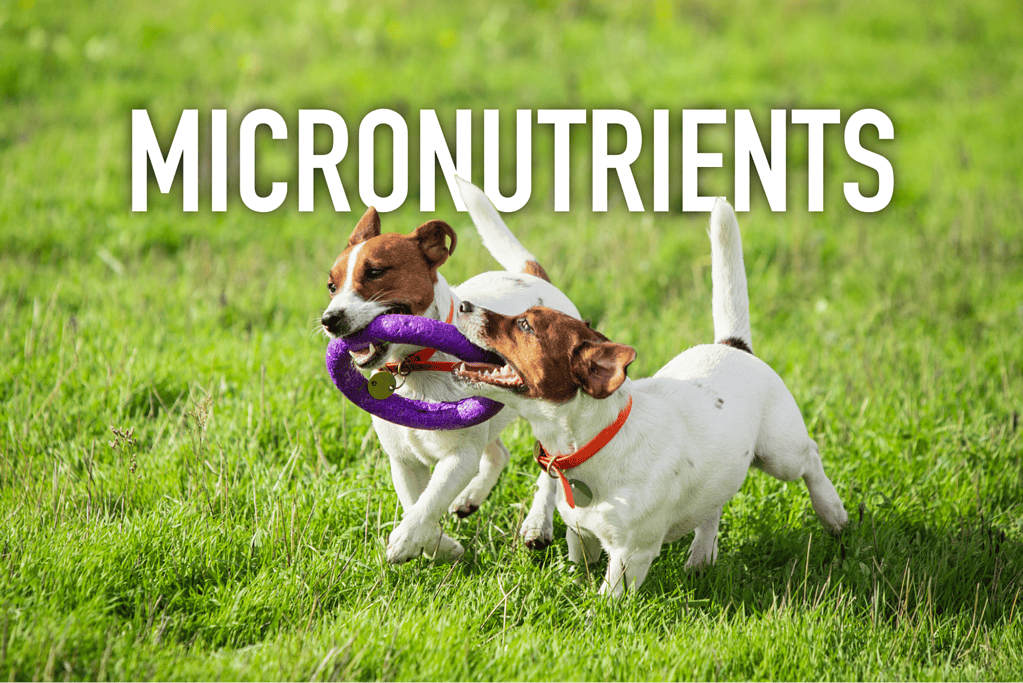
Armed with essential vitamins and minerals like the B-vitamins, magnesium, manganese, iron, zinc, potassium, and selenium, brown rice hits the bullseye for your dog’s overall wellness. It’s like the maintenance crew for your dog’s immune system, bone health, and metabolic functions.
Carbohydrates

Brown rice provides complex carbs that power your fur buddy with long-lasting energy. It’s a great secret weapon for pups that love their playtime and belly rubs!
At the end of the day, introducing brown rice to your pooch’s diet could be the health upgrade your buddy needs. However, before you toss a new ingredient into your pooch’s bowl, always remember to do what’s best and consult with your vet. After all, variety is the spice of life, but safety comes first!
Enjoying this read?
We publish this content for free to generate interest in our Premium members' area. By subscribing, you can ask the writer any questions related to pet care and this article, get access to 100+ Premium Pet Care Guides and go Ad-Free with DogFix Premium for $2.99.
Potential Risks Associated with Brown Rice
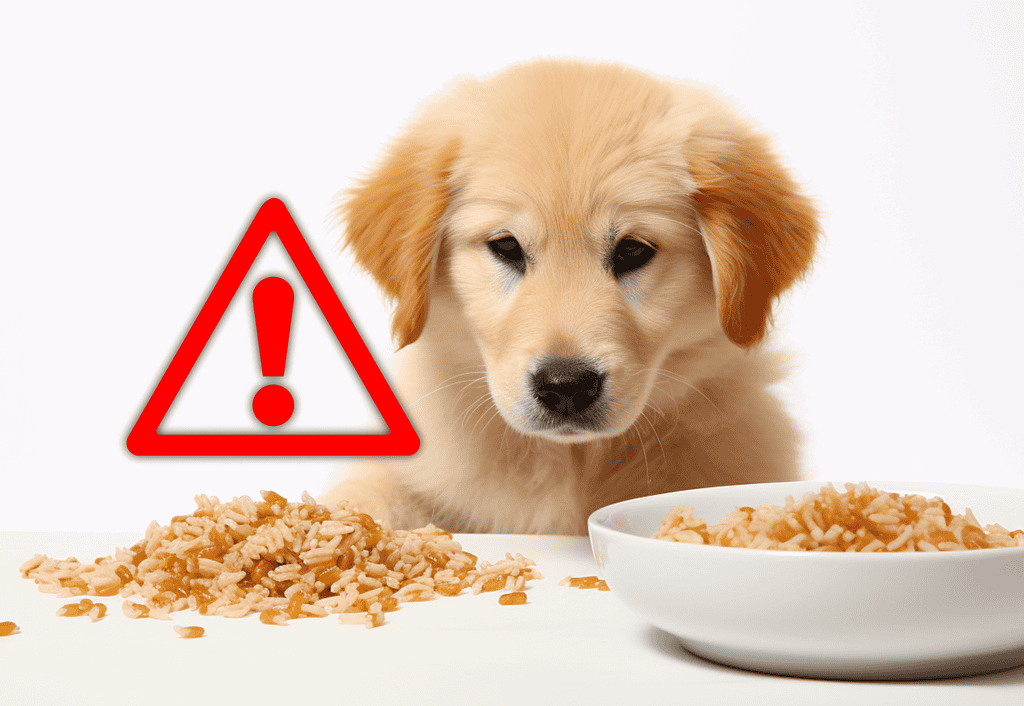
Arsenic
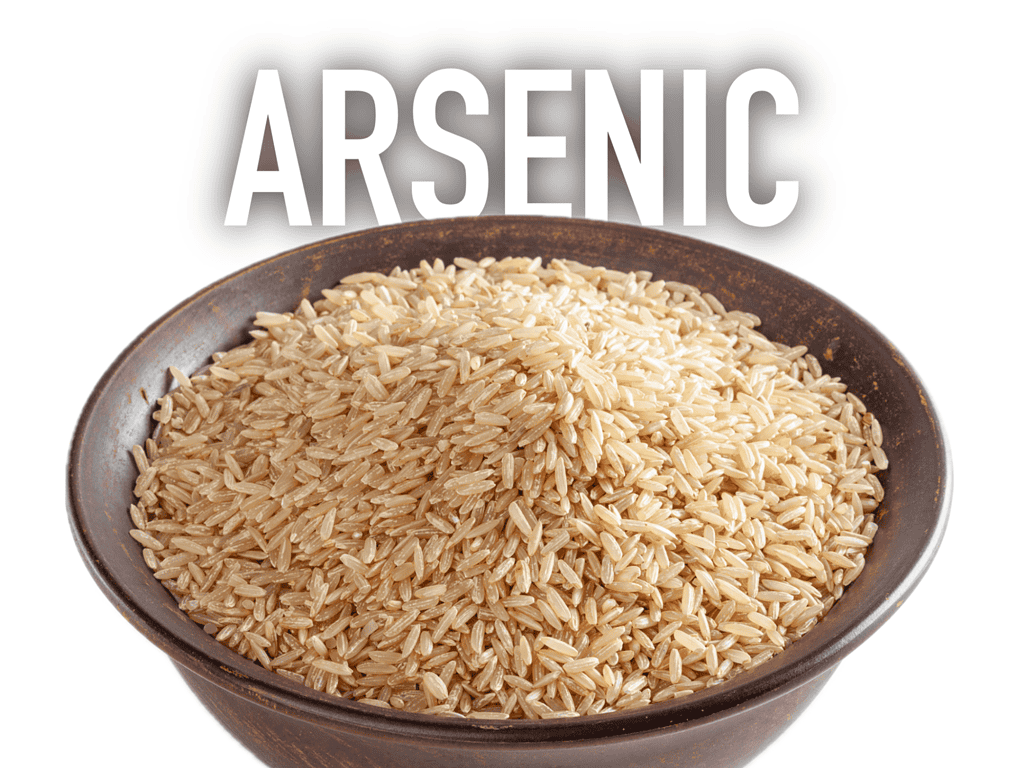
It turns out brown rice has a bit of a dark side – arsenic. Yup, you heard right! Brown rice actually has higher arsenic levels than white rice, showing up in the bran that sticks to the grain. Too much arsenic partying in your pooch’s system can be a downer, so always check in with the vet about the right amount and how often to feed your fur pal this grain.
Obesity And Weight Gain

What’s more, let this be your mantra: ‘Excessive brown rice equals no-no’. It’s like feeding your dog a pouchful of extra calories that can sneak up as unwanted weight. Remember, brown rice is carb-loaded, and while it provides great energy, too much of it could turn your active fur buddy into a fluffy couch potato. Balancing it out with proteins, fats, and all other essential goodies is key to keeping your dog away from health pests like diabetes, joint issues, and heart diseases.
Tummy Troubles

And then there’s the excitement of the first time. You know how sometimes new food can be a literal shock to the system? If it’s your pup’s first encounter with brown rice, it might just rile up their belly, causing the not-so-fun upset stomach, leading to bathroom trips, or, worst case scenario, vomiting. Introducing brown rice? Start slow, keep an eye on your dog, and let their system gradually get accustomed to this new food.
So there you have it; while brown rice can be a game-changer for your fur friend’s health, it comes with its checklist. Always have a chit-chat with your vet on how much and how often to feed your dog this grain. Keeping an eye on their health while they munch on brown rice can help you tweak their diet for minimal risks. Remember, it’s all about balancing the good stuff!
Feeding Brown Rice in the Context of a Balanced Diet
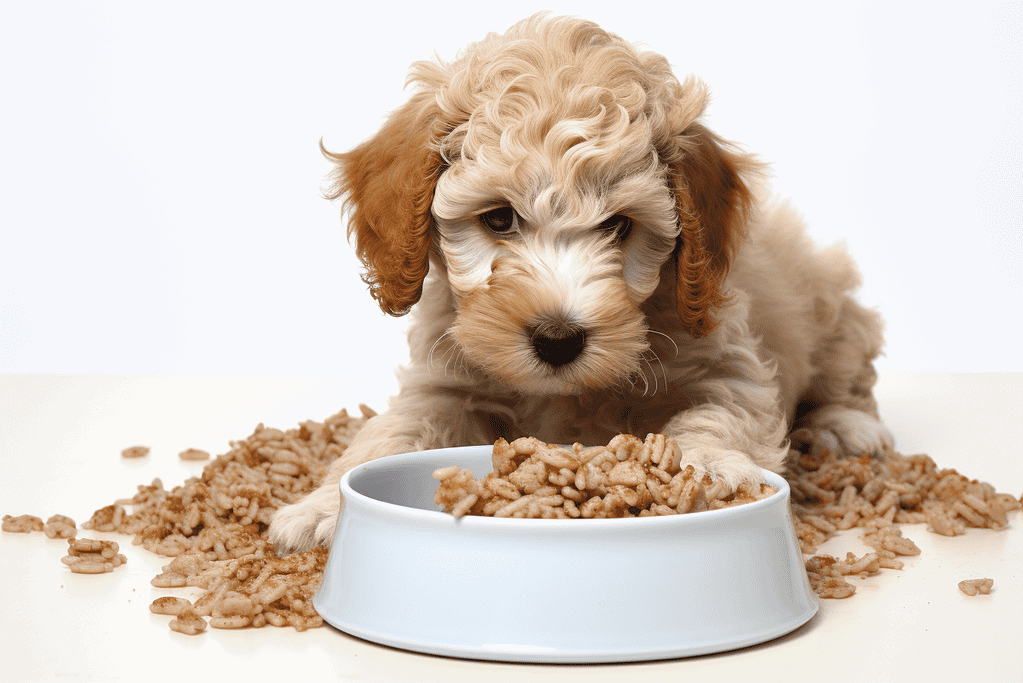
So, you’ve decided to invite brown rice to your doggie’s dinner party. Great move! Packed with natural fiber, minerals, and B vitamins, brown rice is like that nutritious guest who also knows how to have a good time. It entices your fur friend’s palate while also supporting their overall well-being.
The Power of a Balanced Diet
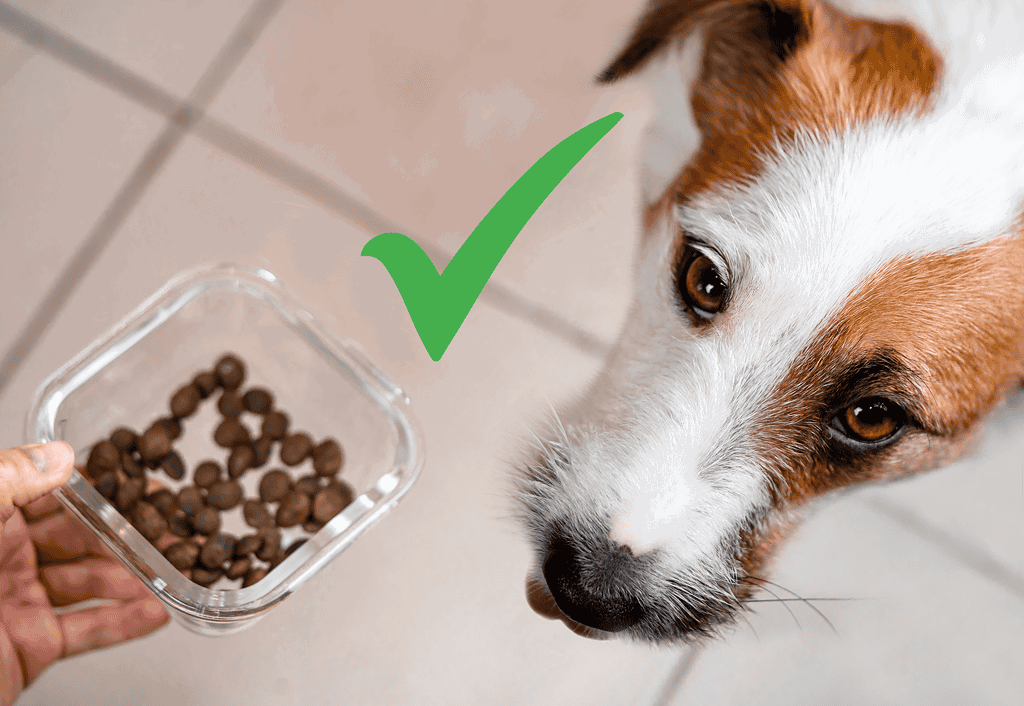
When incorporating brown rice into a dog’s diet, it’s important to ensure that they are receiving a balanced meal. A balanced diet includes adequate portions of protein from sources such as chicken and turkey, healthy fats, and carbohydrates like brown rice. Commercial dog food often contains brown rice as an ingredient, making it convenient for pet owners to incorporate this nutritious carbohydrate into their dog’s meals.
Portion Control
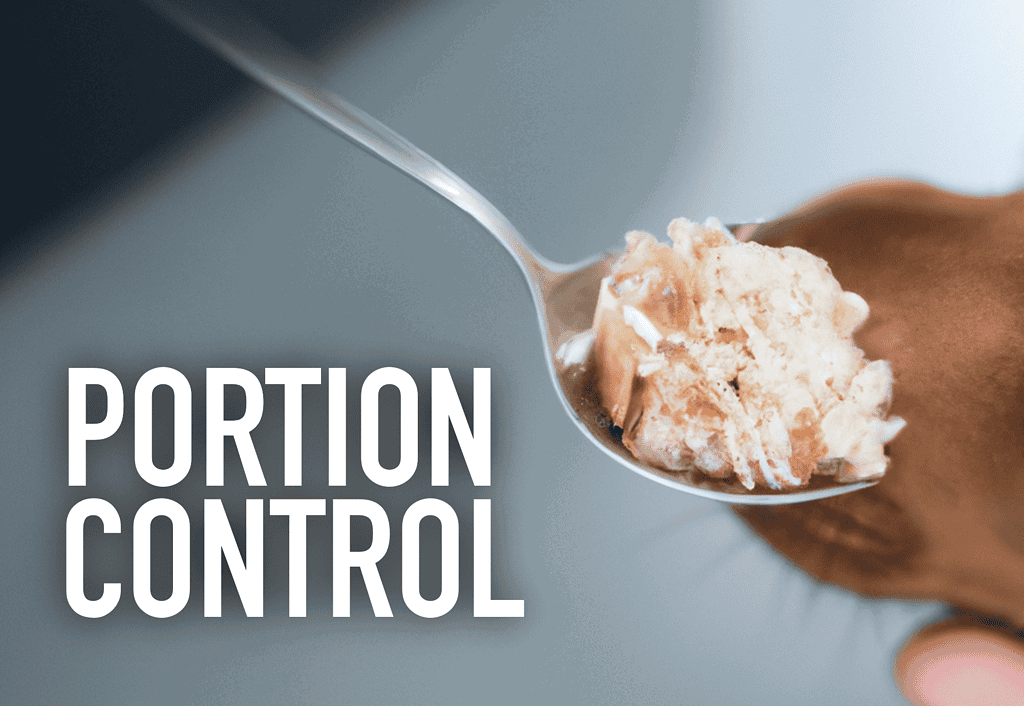
When adding brown rice to your fur buddy’s menu, remember the golden rule: moderation. Just like chowing down on a big bag of fries isn’t the best idea for us humans, overdoing it with brown rice can lead your pooch down the path of the dreaded ‘puppy fat’. A good rule of thumb – keep brown rice treats down to less than 10% of their daily caloric intake. You want the rice to complement their meals, not stage a nutrients takeover!
Brown Rice As Treats
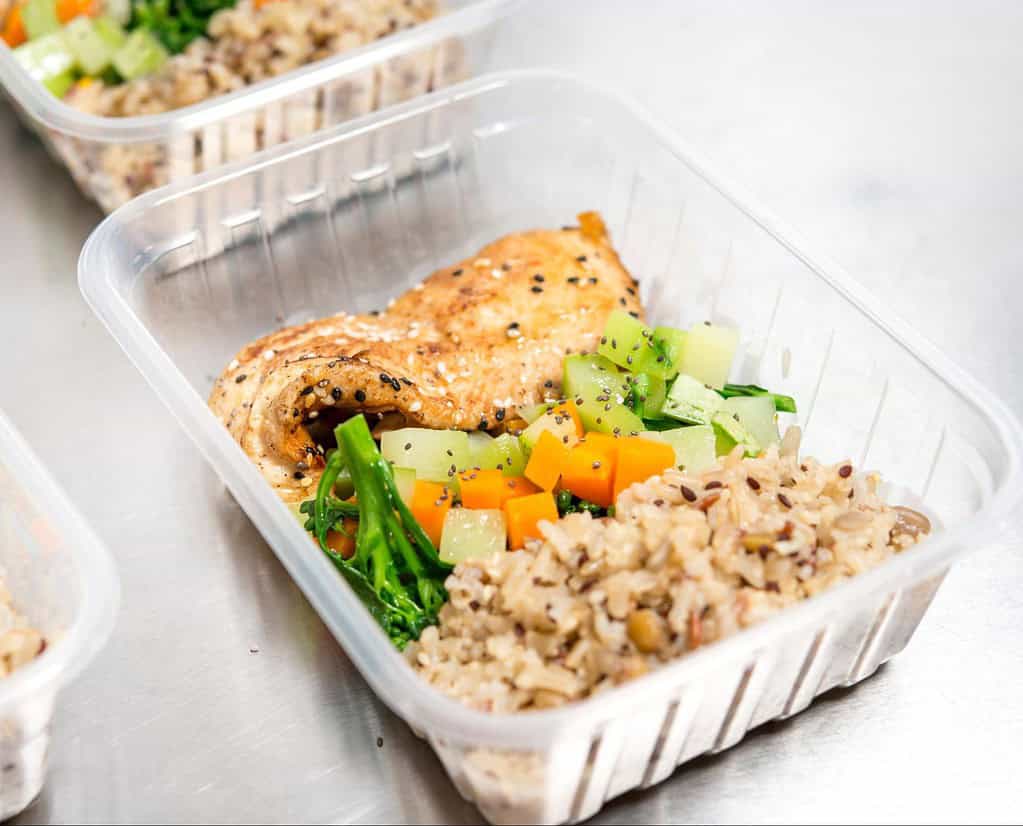
Every dog deserves a treat, and brown rice can play a game-changing role here. Remember though, treats are like the appetizer—not the main course. You can team up brown rice with lean meats (think chicken or turkey) for a lip-smacking, healthy treat. Always remember to balance the treat extravaganza with their overall caloric intake.
In a nutshell, offering a diet including lean meats, healthy fats, and well-portioned carbs will ensure your fur buddy is not just surviving, but thriving on their diet! Remember, the goal is a happy, healthy dog that can enjoy an occasional tasty treat!
Brown Rice for Dogs: Your Questions Answered
Is brown rice good for dogs?
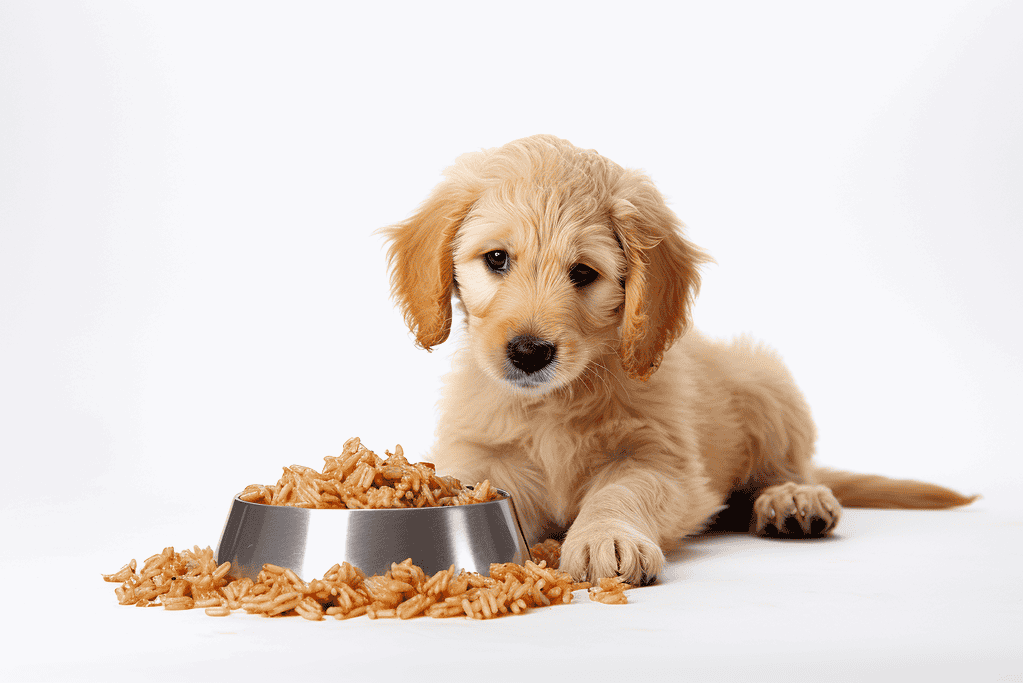
Yep, brown rice is great for dogs! It’s easy to digest and full of important stuff like minerals, B vitamins, and fiber.
How much should I feed my dog?
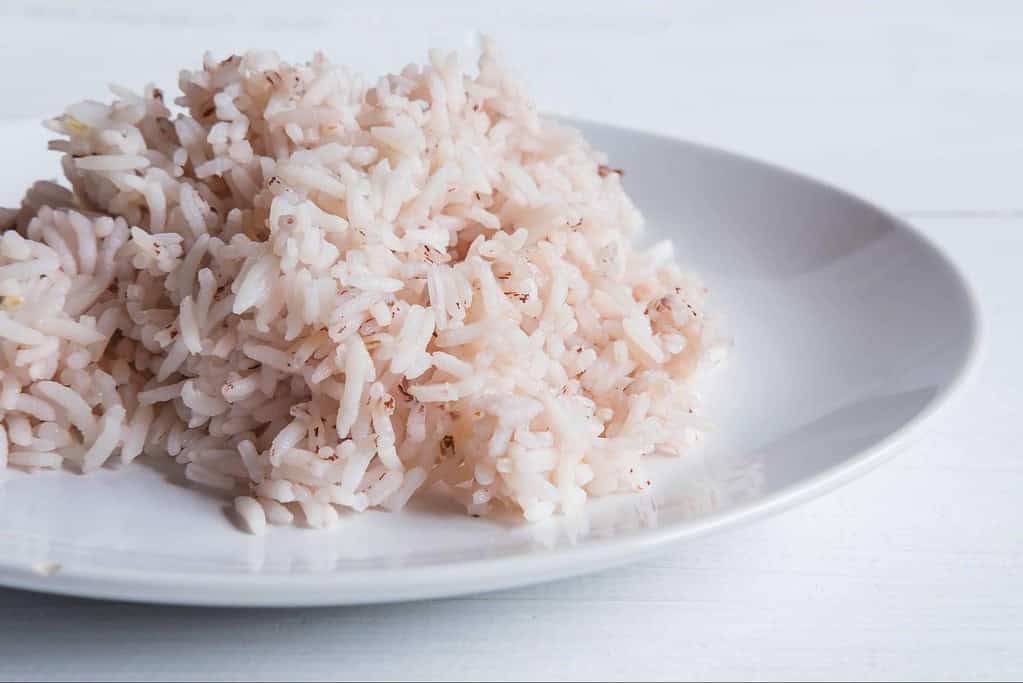
Only a little! The exact amount depends on your dog’s size and diet. And remember, it’s best to ask your vet to be safe.
How should I cook it?
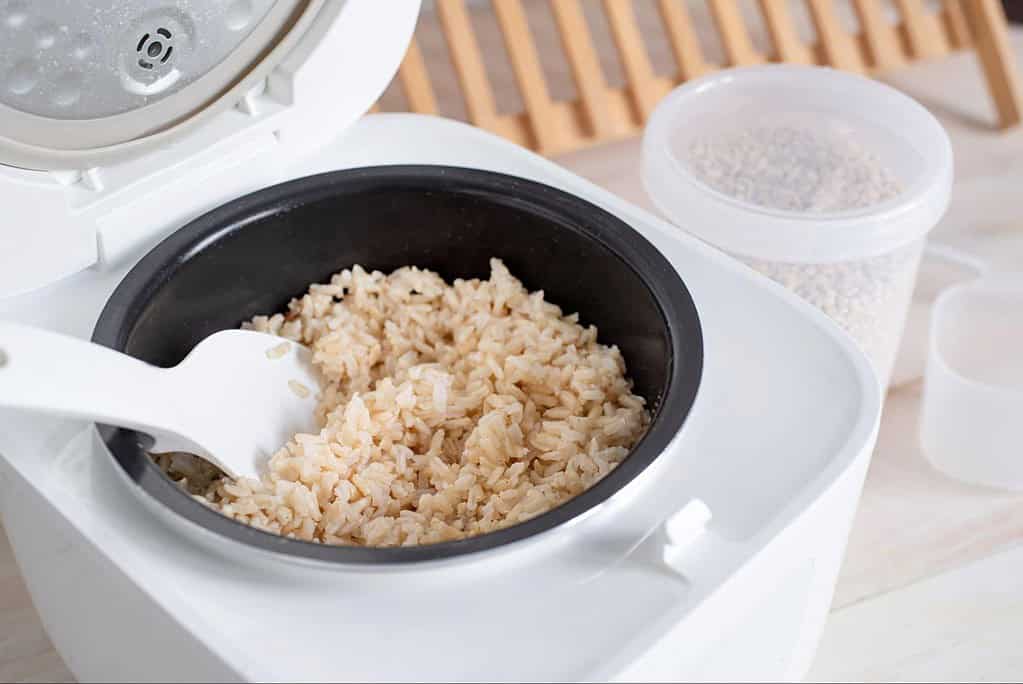
Keep it simple. Add water and cook until it’s soft. Remember, no spicy stuff, salt, or extras and let it cool before serving.
Can it harm my dog?

Generally, no. But if your dog has a sensitive stomach or diarrhea, they might find brown rice hard to digest. In these cases, white rice could be a better choice.
What if my dog doesn’t like brown rice?
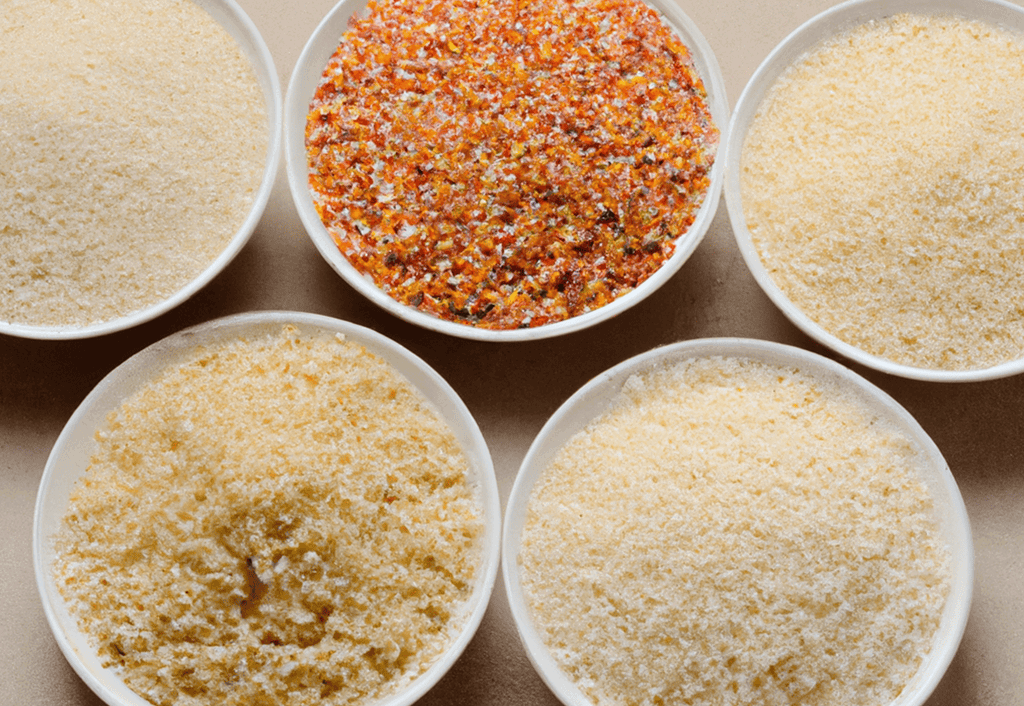
No Problem! Other good carb options include white or jasmine rice, quinoa, barley, or sweet potatoes. Just check with your vet first.
So, brown rice or white rice?
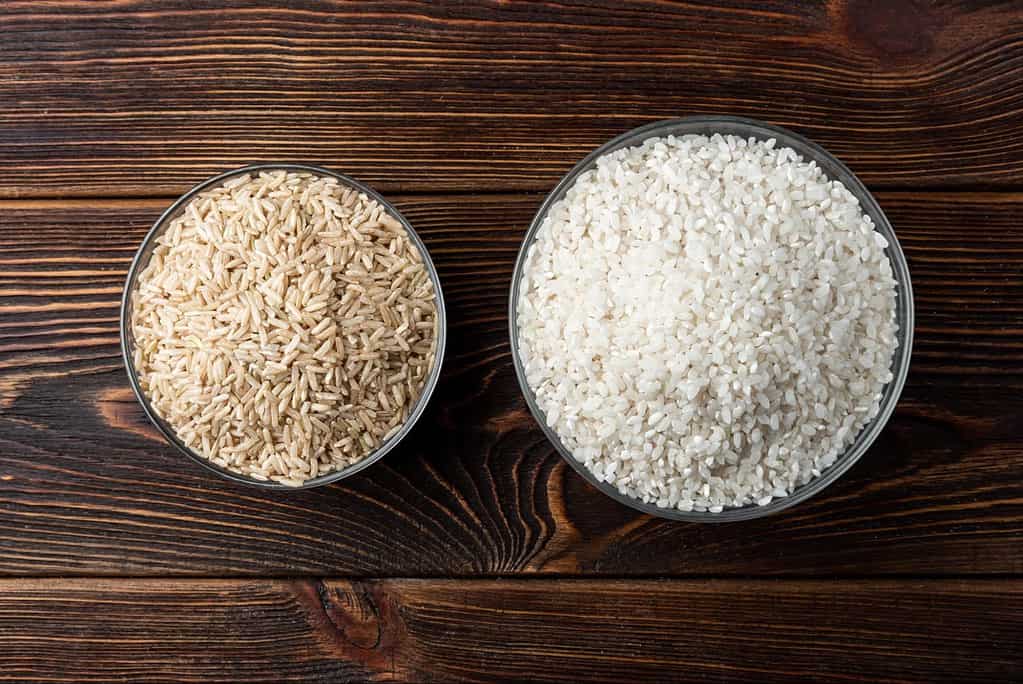
While brown rice is usually better thanks to its high fiber and nutrients, it really depends on your dog. If they have stomach issues, white rice could be easier for them to handle. Always consult your vet to find the best choice.
Things To Remember
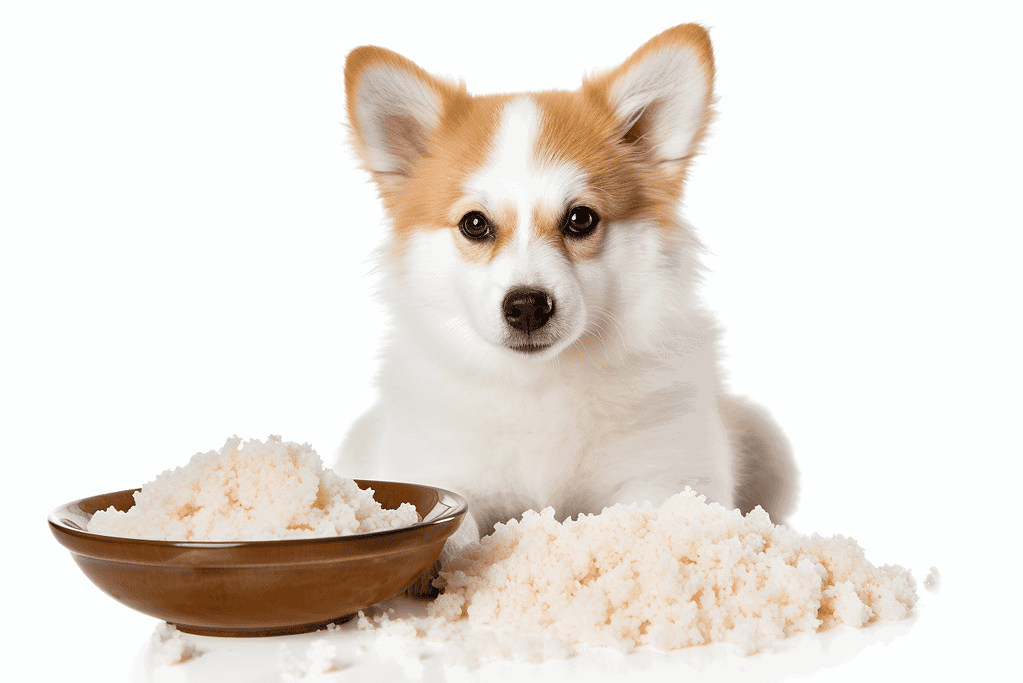
- Brown rice is a safe and nutritious carbohydrate source for dogs
- Compared to white rice, brown rice offers more fiber and a lower glycemic index
- Feeding brown rice to dogs should be done in moderation as part of a balanced diet
